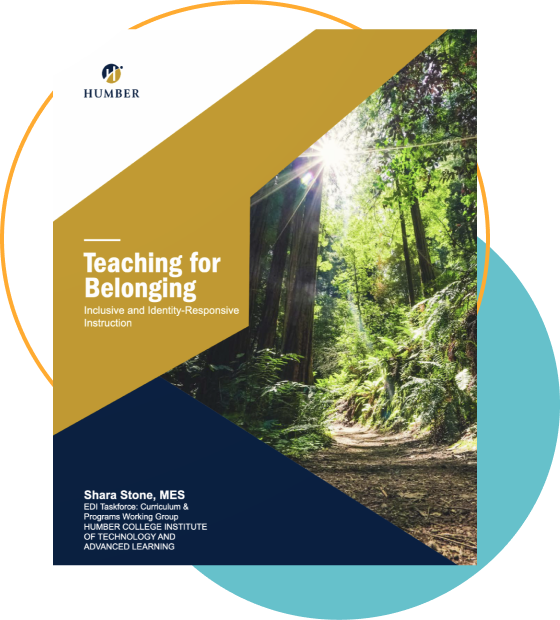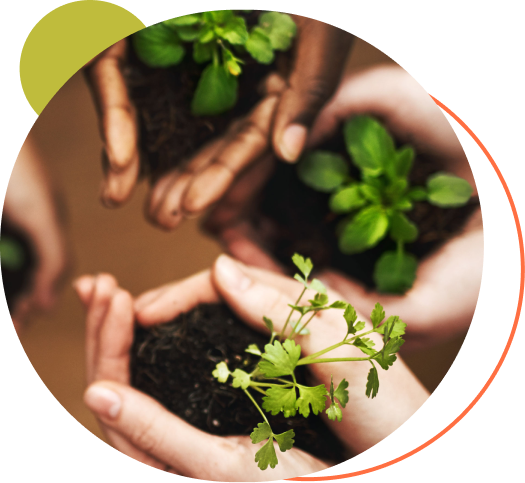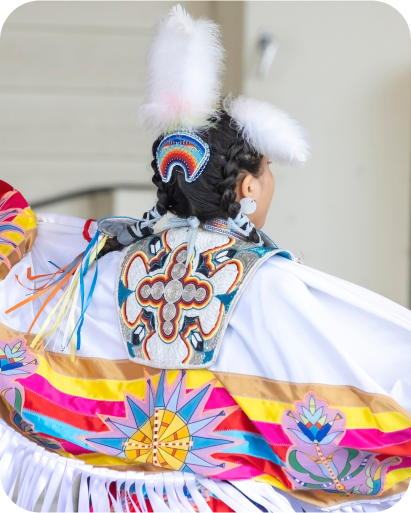Introducing The Humber Learning Outcomes Framework
At Humber, we believe in the power of both Employment and Employability. Our mission is to equip students with cutting-edge industry skills while preparing them for a future of constant change. Our commitment to Employability ensures that Humber graduates emerge as adaptable, flexible, and resilient leaders. They are career-ready citizens, armed with the knowledge, skills, and mindsets to drive positive change in the world.
This video showcases the Humber Learning Outcomes framework, a cornerstone of our dedication to shaping the future.
Empower Learner Success with new HLO E-Learning Resources!
Unlock key employability skills and help your students thrive. Explore engaging E-Learning Modules and valuable HLO resources for students and faculty on your Blackboard sites.
Get Started: Log in to Blackboard and search "HLO" to begin the journey toward impactful learning and growth.
Key Mindsets
Equity, Diversity, Inclusion and Belonging
An equity, diversity, inclusion and Belonging mindset enables us to create a fair, just and inclusive world.
Click here to learn more about how to integrate this mindset into your teaching practice.Indigenous Ways of Being Knowing and Doing
The turtle holds significant symbolism for many Indigenous peoples in North America, often representing patience, wisdom, determination, and longevity, as well as Turtle Island.
Sustainability
A sustainability mindset enables us to think and act with collective futures in mind.
Click here to learn more about how to integrate this mindset into your teaching practice.Systems Thinking
A systems thinking mindset enables us to effect real change by harnessing the interconnectedness of all things.
Click here to learn more about how to integrate this mindset into your teaching practice.Meta-Skill
Critical Thinking
They approach issues with an open mind, reflecting on all perspectives and systems of thought. They assess and analyze all relevant information, and accurately and comprehensively represent key issues.
Click here to learn more about how to integrate this mindset into your teaching practice.Skills in Action
Collaboration
Collaboration skills enable individuals to work with others effectively to achieve a common goal.
Communication
Communication skills enable individuals to convey information effectively.
Digital Fluency
Digital fluency skills enable individuals to use and adapt to digital tools, manage information, conduct research and create and communicate effectively and ethically in digital spaces.
Innovation
Innovation skills enable individuals to think creatively and critically to generate new and unconventional ideas.
Leadership
Leadership skills enable individuals to inspire, motivate and empower others to achieve positive, common goals.
Professionalism
Professionalism enables an individual to exhibit behaviour and actions that enhance personal reputation and contribute positively to success in the workplace.
Strategic Problem-Solving
Strategic problem-solving skills enable an individual to predict and define a problem, and to determine the best approach to achieving a solution.
Download HLO Icons to use in your courses here.

Teaching for Belonging: Inclusive and Identity-Responsive Instruction
To ensure Humber faculty had a “roadmap” to guide their process to integrate EDI into their professional practice and to create a guide for Humber community members who are at different stages in their understanding of EDI, an EDI Guide entitled, “Teaching for Belonging: Inclusive and Identity Responsive Instruction” was developed. The author of “Teaching for Belonging: Inclusive and Identity Responsive Instruction” is Professor Shara Stone.
You can access the EDI Guide by Shara Stone Teaching for Belonging: Inclusive and Identity Responsive Instruction

Equity, Diversity, and
Inclusion : A Faculty Toolkit
This module based experience will reinforce, inspire, and facilitate change towards more EDI-minded teaching practices. This toolkit aims to reach a broad audience. While many are well-versed in the language of EDI for some, this content may be unfamiliar. Learning (and unlearning) are complex, multifaceted processes and this toolkit is intended to offer support in this ongoing journey.
Ready to learn more about Equity, Diversity, and Inclusion? This toolkit can be accessed and used by any faculty at Humber

Indigenous Ways of Being Knowing and Doing (IWBKD)
An Indigenous Knowledges mindset enables us to respect, reflect on and embrace Indigenous cultures, perspectives, systems of knowledge and approaches to life. As humble and open individuals, Humber graduates recognize the cultural foundations and history of the land we inhabit and understand how they have shaped Indigenous realities today. They act bravely to create space for reconciliation, helping to co-create a future based on wisdom, love, honesty and truth.
Ready to learn more about IWBKD? Visit Indigenous Education and Engagement for more.

Sustainability : A Faculty Toolkit
This modular toolkit experience was designed to help you develop a deeper understanding of sustainability and how you can incorporate it into your classroom in meaningful ways - even if the course material isn't about sustainability.
Ready to learn more about Sustainability in your classrooms? This toolkit can be accessed and used by any faculty at Humber

Systems Thinking : A Faculty Toolkit
This toolkit modular series introduces you to Systems Thinking, why it is important, and how systems thinking tools can be adapted to your work and teaching. Systems Thinking is a mindset - a way of seeing, thinking, and approaching the world that embraces and understands interconnectedness. It also refers to a set of concepts and easily applied tools that help us understand how the pieces fit together, transforming the way we think about problem solving.
Ready to learn more about Systems Thinking, a key mindset? This toolkit can be accessed and used by any faculty at Humber


